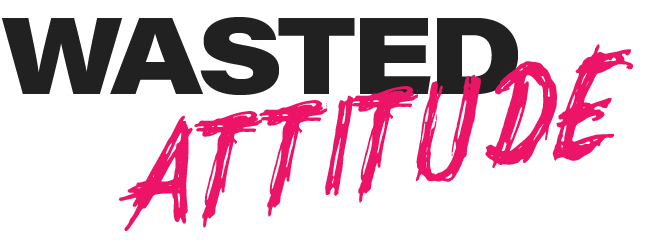Words: Miljan Milekić
One too many times, I’ve shared a story of how Mat Hoffman‘s and Tony Hawk‘s video games were my entry point to worlds of extreme sports and underground music, consequentially changing my life. The soundtracks of those games were a guideline of what’s good music, while the riders included were a footprint of what skateboarding or BMX is. Ever since, I became a massive fan of The Danish Destroyer, aka Rune Glifberg. Thirty years into his career and winning everything a skateboarder can win along the way, Rune is still here and still going strong. From last year’s killer part ‘Phunk 45’ to this year’s Olympics, he can’t be stopped. We couldn’t be happier to grab a bit of his time and bring you a big interview with the legend himself. Tune in below.
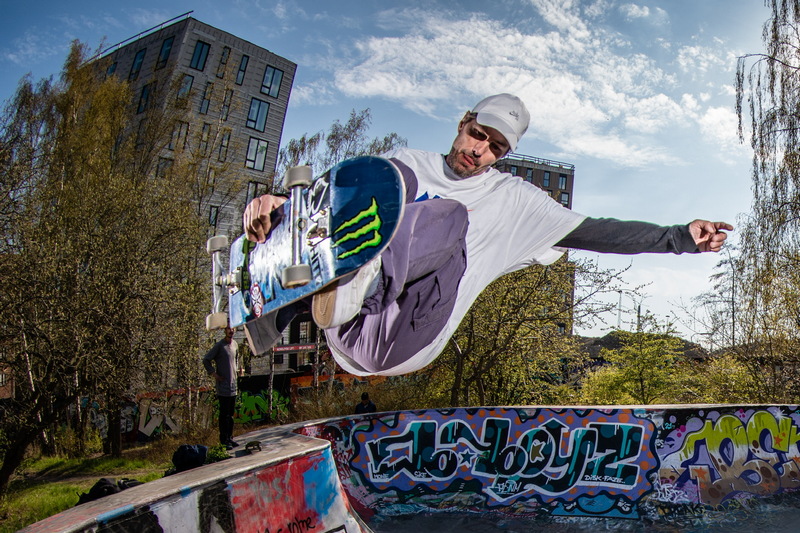
A little over a month from now, you will be in Tokyo, at the freaking Olympics. How crazy is it to even think about it, after so many years on the board, and after doing everything you’ve done so far?
Rune: I think for me, it’s been a huge change. I was part of the first X Games, which had happened back in 1995, so I’ve, obviously, seen a long stretch of the evolution of skateboarding – all the way back from the grassroots, local events to the bigger events in the US and the X Games, and now the Olympics. For me, personally, it’s been a great journey, and it’s cool to see skateboarding reaching new audiences and being more widely accepted. So in that sense, I look at it as a positive thing.
I think that skateboarding will never lose its cultural aspect and being artistic and personal expression. Its core values. I think it will always be, you know, fucked up pants with holes in them, blood running down your arms, knees, or whatever. Skateboarding will always be dirty. It will always be in the gutter. And I think the Olympics is just going to be another platform for it to reach out and get more people involved.
READ MORE: Check our interview with a legendary Chicago punk rock band Rise Against
In Tokyo, you will take on some of the guys who weren’t even born when you were taking X Games medals and winning contests around the world. How does it feel to go from going up against guys like Tony Hawk, Bob Burnquist on a vert ramp, to competing in park with guys like Cory Juneau and Pedro Barros?
Rune: It’s, obviously, been a big change for me. Growing up, I used to be one of the young guys coming onto the scene, and now I’m one of the more elderly and experienced ones. It’s interesting to see all the young guys, and I definitely see a little bit of myself in them when I see their attitude towards competing and how everything’s new and interesting to them. So, to me, it’s really exciting to see this new breed of skateboarders and their take on it.
But, from a competitive standpoint, I obviously have a lot more experience, and maybe I’ll be able to feel more at ease on the big scene with all the cameras and everything that’s going to be happening around the Olympics. I might have an easier time coping with that stuff than some of the younger guys. To them, it’ll be all new and maybe a little bit intimidating, but we’ll see. I’m just happy to be skateboarding, and I feel blessed that I’m still able to perform at this level at my age.
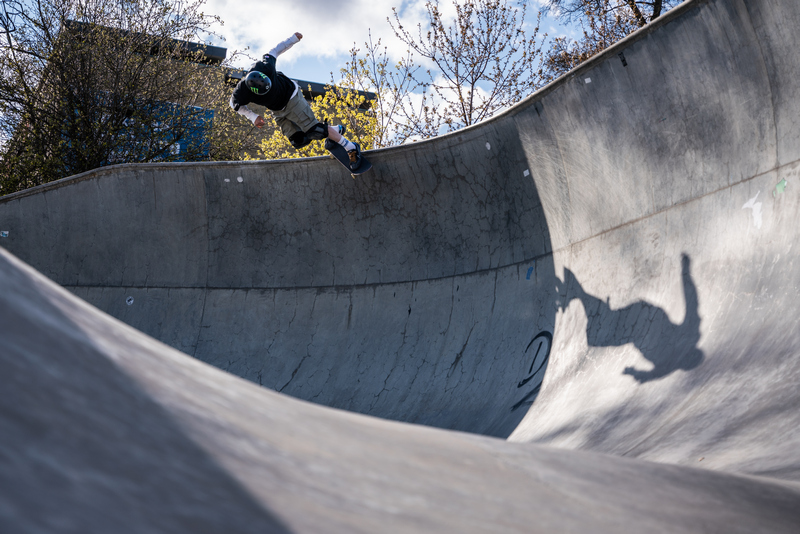
Twelve X Games medals, and countless wins and medals later, how do you find the energy and motivation to reinvent yourself and stay in the game for so long?
Rune: Yeah, that’s definitely one of the big factors for me where I’m lacking a little bit – finding motivation. Especially to go out and be competitive and win, because to be fair, I have, at one point in time, won almost everything there is to win in skateboarding. From the X Games to some of the core skateboarding contests like Tampa Pro and everything in between on that spectrum, I’ve done really well. I’ve been world champion, all this kind of stuff. So, it’s definitely hard for me sometimes to find the motivation to go out and compete. But I feel like the Olympics was a new challenge for me. It was a big personal challenge just to qualify amongst all these young guys.
I also find a bit of motivation in trying to be a good ambassador for skateboarding in Denmark. I’m trying to lay a good foundation that future generations here in Denmark where they can benefit from skateboarding being a part of the Olympics and the Danish National Sports Federation. Where they will look at skateboarding now like – “Okay, this is something that we should be a part of in the Olympics. We have guys that are on an international level.” I feel like, for me, just to put Denmark into skateboarding in the Olympics, at the very first Olympics – hopefully, we’ll have guys in the future that will carry on that torch, and Denmark will be a part of the Olympics for years to come – that has definitely been a motivation for me as well. To just try to do something for skateboarding here in Denmark.
In today’s contest world, do you think it’s still possible for skaters to be unique and have their own style like you did back in the day, or it’s more about calculating and doing the same thing as the other guy, but try to make it bigger, faster, higher?
Rune: I think individuality has always been one of the most important things in skateboarding. That’s another reason why it was motivating for me to be a part of the Olympics – to show something a little bit unique with me being a little bit older. I think there’s still room in skateboarding and competitive skateboarding for people to be diverse and show different types of tricks. Not everyone has to look the same. If you look at gymnastics, it’s very similar – everyone has to do the same tricks to score high.
But skateboarding, I mean, if you just look at the recent Street World Championships in Rome, Yuto Horigome won that, and he has a very unique bag of tricks that sets him apart. And he won against Nyjah Huston. And if you look at them as skateboarders, their trick selection is pretty far apart, but they’re both at the top level, and both able to win and be world champions. And Yuto beat him, hands down, on Nyjah‘s good day. So I think that we’ll still see people going in the direction that they feel natural to their own riding abilities versus trying to do certain tricks because they know they score high.
With the Olympics, that level of competition may start to look a little bit more uniform, but, luckily, we still have the rest of skateboarding, the core part of it, which is probably about 80 to 90% of what skateboarding really is. I feel like competing and contests are only 10% of what skateboarding really is, so I don’t think that we’re going to see any sort of damage to skateboarding because of the Olympics. It’s not going to be like everyone’s out in the street doing the same tricks. You’ll still gonna have a big wide variety of tricks and how people want to express themselves.
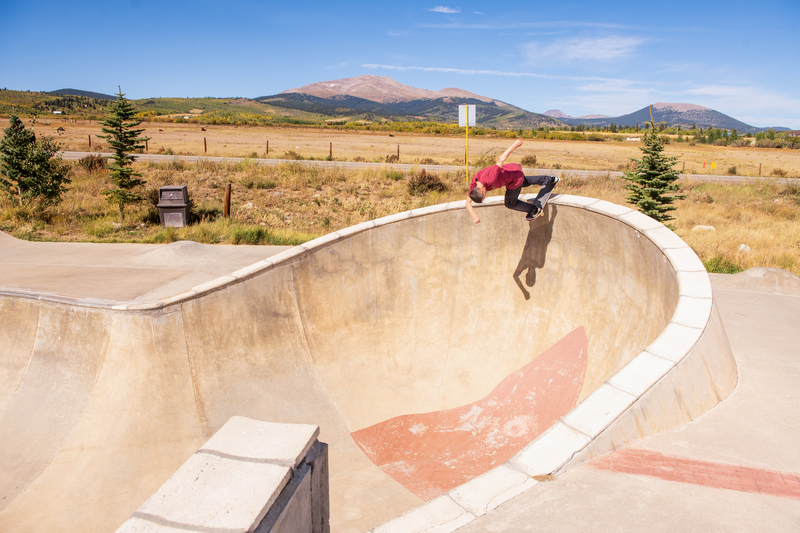
Ever since the mid-’90s, street skateboarding took over the place as the most popular direction, but I feel like park and vert are slowly getting back in focus. Do you think that this is a trend that could continue in the future?
Rune: Well, I truly hope so. I think that – especially park skating and pool skating – made a huge comeback in the past ten years, and now it’s really popular again. I feel like there are still new boundaries and new levels of that type of skating that need to be explored. If you look at guys like Cory Juneau, he’s on a level that’s above everyone else’s. And, that’s the sort of level that we should be looking at. Or young people should be looking at, maybe not myself in particular. (laughs) So, I definitely feel like concrete skateboarding has made a huge comeback.
I also feel like I, kind of, helped progress that style of skateboarding when I first came to the US back in ’94. No one was skating pools. Even the people that were, they weren’t really trying to do that many tricks or to get technical in pools. So I feel like I help to push that a little bit and try to get more tech tricks in the pool – you know, flipping your board, doing crooked grinds, and things like that. I’m always been drawn to skating pools and skating concrete stuff that’s a little bit more aggressive than vert. But yeah, I definitely hope that it stays that way and that we’ll see a lot more park skating in the future. Vert, too. Vert is making a comeback, and, hopefully, we’ll see, we’ll see more of that. If vert gets included in the Olympics, we’ll definitely see lot more people wanting to skate, especially girls.
READ MORE: Check our interview with Dutch skateboarder and future Olympian Candy Jacobs
One of the things I love about you is that you look like you live, breathe and bleed skateboarding and skateboarding culture. From vert and park to street skating, from the contest circle to video parts. What would you say was your main push to do it all and give all you have every time you’re on your board?
Rune: I’ve always loved all kinds of skateboarding. I still watch skate videos, I still watch street parts, vert parts, and whatever comes out, you know? So, I’ve always been drawn to all types of skateboarding. If I could choose myself as a skateboarder, it definitely wouldn’t be the type of skateboarder that I am. I would be more drawn to tech street skating or something like that, I really love that kind of style of riding.
But, as far as my own potential, and for my own talent, I always knew that transition skating just came easier to me. It was more natural to me to skate that type of terrain. And, of course, I love it, but I always wanted to try and go into different directions and get more of the street skating influence into vert skating or pool skating. To try to mix those things together. I think that’s given me a little bit of a unique edge at one point, around the 2000s or 2010s. It gave me a different look to all of the other, say vert skaters or people who skated transition.
And as far as doing video parts and, and doing stuff that’s not contests, to me, that’s just a natural part of being a skateboarder. That’s what we need to do – that’s where the core respect is, that’s where your main sponsorships are, that’s how you get in the magazines and all this kind of things. And you want to be a part of core skateboarding. If you only skate in contests, then you’re not really a part of skateboarding. Like I said before, I feel like competitive skateboarding only accounts for maybe like 10% of what skateboarding is. If you look at graphics or skate fashion, or taking photos and the video stuff, like all these creative outlets as a whole, account for so much more than what it is to skate a contest, you know? So I wanted to be a part of what skateboarding is, and I’m sure that’s what’s kept me here to this day, still riding for a proper skate company.
Next year will mark 20 years since the legendary Flip‘s ‘Sorry,’ and until this day, your part in it is one of my favorite parts ever, by anyone. How does it feel to look back at it from this distance? Did you have any idea at the time how much of an influence on the skate scene will that video have?
Rune: I feel like, at the time, we were definitely aware of the Flip Skateboards team and how strong it was. I also knew that having a strong part in that video was important for me. If you look at the history of, say, skateboard videos, there’s always been that part – usually like a vert part, that would be like the “fast-forward part,” where people would skip that part. So, I wanted to make sure that my part wasn’t going to be that; that I definitely brought something to the table that people would be excited about, you know? Probably a lot of people did skip it anyway (laughs), but yeah, to me, it was just important to have a strong part. We had a strong team, and obviously, I wanted to have that strong presence as well.
As far as the video being, in some people’s opinion, one of the best skate videos of all time, I’m not sure I was aware of that, and that we would have that impact. But I was definitely aware that the rest of the team was world-class, some of the best in the world. At the time, it’s hard to say where skateboarding’s going. Skateboarding has gone in a direction that hasn’t just been a progression, progression, progression, progression. It’s gone in a more creative sort of way. But when you look at where we were at that time – skateboarding was at the point where it was like – better, better, better, better, better. It was, kind of, at the height of how you just wanted it bigger and gnarlier, bigger handrails, and all this kind of stuff. That’s where skateboarding was going. So, I feel like we hit a level there, where skateboarding, kind of, topped out in a way. And, obviously, with Arto [Saari] and Tom [Penny], and all the rest of the guys on the team, it definitely made for a classic video that still holds its own today.
At the time, you were located in the US, along with the rest of the Flip team, because, as you said in some of the earlier interviews, skateboarding in Europe was dying. Now, being back in Copenhagen, how do you see the European skate scene, especially compared to the one in the States?
Rune: Well, the skate scene in Europe now is so much stronger than it was, back when I moved to the US back in 1994. There are lot more outlets, and everything going digital, obviously, helped massively with being able to sustain a pro career while being in Europe. Everyone has an outlet, you know? Everyone has an Instagram where they can put out footage or promote whatever sort of stuff they’re into.
It’s not like in the nineties where you needed to be in California because that’s where all the magazines were. That’s where most of the videos were being filmed. And if they weren’t being filmed there, you would go with someone from California to China, or maybe Europe or wherever, you would film stuff for production that was going to happen in California. So, in that sense, it’s changed, and I think it’s great that we’re seeing a lot more skate scenes worldwide. Not just in Europe, but South America to Asia. We have great skateboarders coming from all over the world now. And it didn’t use to be that way. In the ’80s and ’90s, and even like the early 2000s, I feel like almost all of the pros were still coming out of America. If you wanted to be a pro, you definitely had to go to America, preferably California, and try to make a name for yourself there.
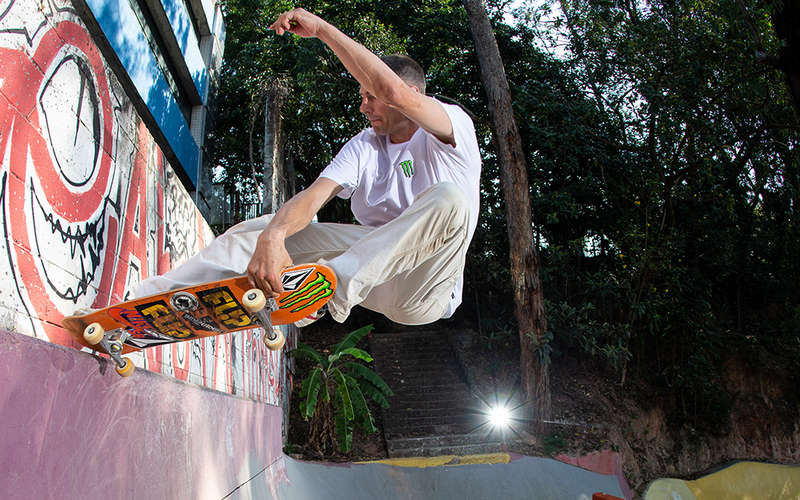
Rune Glifberg and Flip Skateboards – it seems like a match made in heaven, and it’s a partnership that’s almost as old as me. How did it all start, and what have they done right to keep you for all these years?
Rune: I first got sponsored by Flip at a local skate contest here in Denmark. It was an international contest, and Omar Hassan and a lot of other US pros came over. I got picked up by Flip there, and that was my first sponsor ever. Shortly after that, I started traveling around Europe, going a lot to England, where the company was based, and Jeremy [Fox] and Ian [Deacon], who own Flip, became like father figures to me in a way.
When we moved to The States, that was, obviously, a big push for Flip. We landed in America with some work ahead of us, but it quickly grew into a big success. And I feel like the success of the company also helped my personal success. I feel like I owe all that success to Jeremy and Ian, who were the ones that facilitated it. They’re the ones that built the image around the company. They, in a way, acted as agents for us on the team without taking any money, hooking us up with shoe sponsors, clothing sponsors, whatever we needed. Really took care of the whole team – myself, Geoff Rowley, Tom Penny, and Andy Scott. So, very early on, I got a very good sense of a family coming from Flip.
I mean, still, to this day, I’m a hundred percent certain that I wouldn’t be sitting here today doing this interview with you if it wasn’t for Flip and for Jeremy and Ian. I kind of feel like I own them my whole career. And riding for Flip today – they still have a great team, so it’s also a statement. It’s almost like my name is synonymous with Flip and the other way around. If you think of Flip, you probably think of me, and Tom, and a couple of the original guys. So, in that sense, I feel like there’s some good synergy still happening with me and the company. And like I said, Jeremy and Ian have been like brothers or fathers to me, so it’s my family. It’s where I belong.
READ MORE: Check our interview with Arizona skate punk heroes Authority Zero
Two things I’m raised on are extreme sports and punk music, and one more thing I always loved about your video parts was the soundtrack – from the earlier ones to the ‘Phunk 45.’ How important is the music for you, whether when you’re riding, or as a soundtrack in the videos?
Rune: I’ve always been hugely drawn to music. I used to play music when I was a kid before I got heavily into skateboarding. I used to play bass and drums. I’ve always liked a lot of different types of music, and I think it’s really important to have the right music in your life, to set the mood for whatever you’re doing. It can definitely make or break your day. Even if you’re driving on a road trip or whatever, just putting on some nice music, gets you in a great mood. Like, today is a rainy day in Copenhagen, so maybe put on some jazz, something a little bit more vibey or depressing. (laughs) And on a sunny day, just blasting some good hip hop. (laughs)
But as far as the connection with skateboarding and video parts, a good song can make or break a part. Sometimes you see a part where you’re like – “Wow, the skating is so good!” – but the music’s not doing anything for you, and that’s a shame. And I’m not saying my music choices have been the best throughout all my video parts. I’ve definitely had some odd choices, like John Coltrane and, yeah, just random stuff. And my latest part, ‘Phunk 45,’ a local artist here from Copenhagen, Pato, I had him make an original soundtrack for it. Also, for ‘Extremely Sorry,’ an original score for the whole video was done by an artist called Baron. I feel like music in my video parts also reflected a little bit of where I am in my life, what I’m into, and how I want my skateboarding to look.
In recent years, you once again reinvented yourself as an architect but still stayed in skateboarding. Can you tell me more about the project, and how did it all start?
Rune: It started with our local skate park here in Copenhagen. It was gonna get refurbished, and I gave some input on that, made sure that going in the right direction, and that we had a good variety of stuff there. From there, I met Ebbe [Lykke] and worked a little bit with him – consulted on a project that he had up north, outside of Copenhagen. So, we did that project together, then more projects started coming along, and after a few years, we started a company.
That was in 2014. And from there, we’d just been growing and taking on little projects. We’re still a two-man operation, so I try to put in as much time as I can besides skateboarding. I try to put in at least three or four hours a day. It’s very cool. It’s almost like skateboarding without physically having a skateboard, which is interesting. I can sit and daydream all day about my favorite skateboarders, or how would this person skate, or what should this skate park look like…
So you’re skating in your head when you’re designing. But that’s the fun part. Obviously, there’s a lot of technical stuff that I’ve had to learn as well, like drawing, using certain architectural software, and things like that. And also some boring business stuff, going to meetings, finances, and all this other stuff. But I guess that’s part of owning your own company and trying to start things up from the ground up.
So how does it feel to drop in for the first time and test out the park knowing that you’re the first one to ride it?
Rune: Oh, that’s always really weird for me. We usually only design at our studio, so when we’re out supervising the build and stuff, there are usually guys that have been working on a project for months. Six months even, sometimes. So I have to make sure that they get to skate when I do as well. They’ve done all the hard work, and then I just come in and skate – I feel that’s a little bit rude or a little bit off. So I always try to make sure that we’re skating with the guys that have been building, and I feel like that’s just good karma.
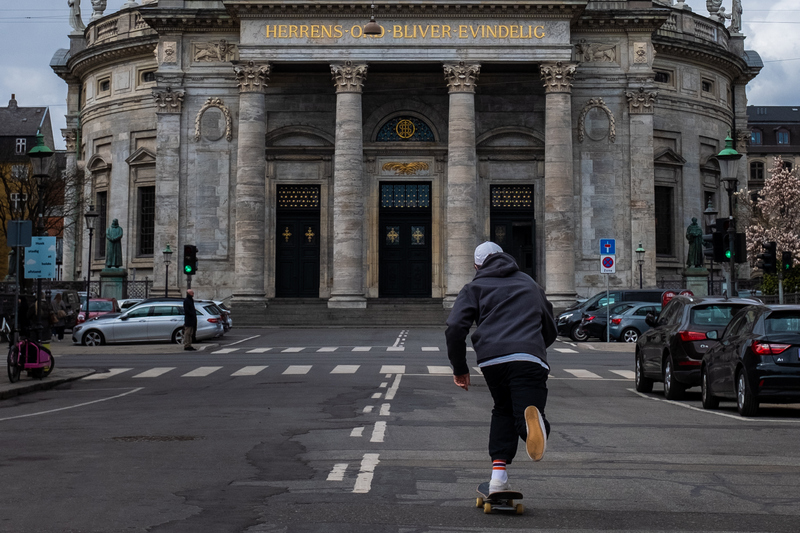
This will be my last one for today, and I just have to ask it, as it was the thing that changed my life – Tony Hawk‘s video games. For me, and many more in my generation, those games were an introduction, not only to the world of skateboarding and extreme sports, but also to punk rock, and the underground culture in general. So, how did it happen, and how was it to see yourself in a video game? On the other hand, how does it feel to be part of such a massive thing in popular culture? Did you, at the time, had any idea of how big and influential it will become?
Rune: When we did the game, neither Tony Hawk, myself, nor any of the other casts in the game, knew what sort of impact it would have on the world. And not just the skateboard world, but the world outside of skateboarding too. I feel it was a great opportunity, and I think it was very well done by Tony. The fact that he included the music that he did, it was punk rock, stuff like Agent Orange, the rad, old punk music, rap tracks that had been a great part of skateboarding.
I feel the game definitely reached far outside of skateboarding and drew a lot of people into skateboarding. And hopefully, that’s something that we’ll see some similarities with the Olympics, as far as skateboarding having a platform to draw people in. I’m very blessed, and I feel very happy to be a part of the series and the remaster last year, which put it back on the map, and put the original cast back on the map, too. So, great thanks to Tony for doing all the hard work, and putting out such a sick game.
Follow Rune Glifberg:
Instagram: instagram.com/runeglifberg
Facebook: facebook.com/runeglifberg
Twitter: twitter.com/RuneGlifberg
Glifberg – Lykke Website: glifberglykke.com
